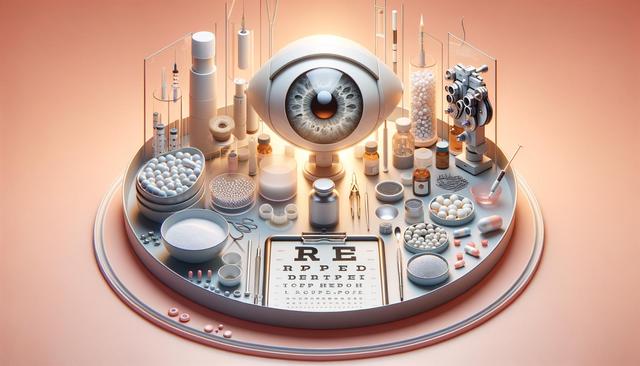What Is Laser Eye Surgery?
Laser eye surgery is a modern procedure designed to correct common refractive vision problems such as myopia (nearsightedness), hyperopia (farsightedness), and astigmatism. The surgery involves the use of precision lasers to reshape the cornea, allowing light to be properly focused onto the retina. The goal is to reduce or eliminate the need for corrective lenses such as glasses or contact lenses. Laser myopia surgery, in particular, targets the elongated shape of a myopic eye to improve distance vision. Various techniques exist, with LASIK and PRK being among the most widely used. The choice of method often depends on the patient’s eye health, corneal thickness, and lifestyle needs.
Laser eye surgery has evolved significantly over the years, offering enhanced safety and precision. Improved diagnostic tools, such as corneal mapping and wavefront technology, allow surgeons to tailor the procedure to each individual’s eye structure. These advancements contribute to higher satisfaction rates and more predictable outcomes.
Is Laser Eye Surgery Suitable for You?
Determining whether laser eye surgery is suitable depends on several personal and medical factors. A comprehensive eye exam is essential to assess candidacy. Generally, suitable candidates for laser myopia surgery include:
- Adults over the age of 18 with stable vision for at least one year
- Individuals with moderate to severe myopia or other refractive errors
- People with healthy corneas and no major eye diseases
However, the procedure may not be recommended for those with certain conditions, such as chronic dry eye, thin corneas, or autoimmune disorders. Pregnant or nursing individuals are also advised to postpone surgery due to hormonal changes that can affect vision stability. Consulting with a qualified ophthalmologist is the best way to determine eligibility and explore alternatives if needed.
Understanding your reasons for considering surgery is equally important. Whether it’s for convenience, professional requirements, or lifestyle improvements, clarity on your motivations can help set realistic expectations for the results.
The Safety and Risks of Laser Eye Surgery
Laser vision correction is considered a safe and effective procedure when performed by experienced professionals. Like any surgical procedure, however, it carries potential risks and side effects. Most patients experience only minor and temporary issues, but being informed helps in making a confident decision. Common side effects include:
- Dry eyes during the initial healing period
- Glare or halos around lights, especially at night
- Fluctuating vision in the first few days or weeks
Serious complications such as infection or vision loss are rare, especially with proper post-operative care and adherence to guidelines. Pre-surgical screening helps minimize risks by ensuring only suitable candidates undergo the procedure. In many cases, side effects resolve within a few weeks, and follow-up visits help monitor healing and address any concerns promptly.
Safety is further enhanced by technological advancements and stringent clinical protocols. Choosing a clinic with a strong track record and transparent communication practices is essential for minimizing risk and ensuring a smooth experience.
Understanding the Recovery Process
Recovery from laser eye surgery is typically fast, but it can vary depending on the individual and the technique used. Most people notice improved vision within 24 to 48 hours, although full stabilization may take a few weeks. Here’s what to generally expect during the recovery phase:
- Initial blurry vision and sensitivity to light for the first day or two
- Gradual improvement in vision over several days
- Restrictions on activities like swimming, eye makeup, and strenuous exercise for the first week
Post-operative care is crucial. Patients are advised to use prescribed eye drops to prevent infection and inflammation, wear protective eyewear, and avoid rubbing their eyes. Follow-up appointments are scheduled to track healing and ensure optimal outcomes. Adhering to medical guidance significantly reduces the chances of complications and supports a smooth recovery.
While many return to work within a couple of days, it’s important to listen to your body and take the time needed for complete healing. Long-term success depends not only on the surgery itself but also on post-surgical habits and care.
Long-Term Outcomes and Considerations
Laser myopia surgery offers long-term vision correction for many patients, often reducing or eliminating the need for glasses or contact lenses. However, it’s important to understand that the eyes can continue to change over time. Some individuals may require enhancement procedures years later, particularly if their vision changes due to age-related conditions such as presbyopia or cataracts.
Here are some key long-term considerations:
- Vision correction is typically permanent, but slight regression is possible
- Regular eye exams remain important even after surgery
- Some patients may still need reading glasses as they age
Most individuals report high satisfaction with the results, particularly in terms of convenience and improved quality of life. That said, managing expectations is crucial. While laser eye surgery can offer clear vision, it may not guarantee perfect eyesight under all conditions, especially in low-light environments or as the eyes age.
Discussing your lifestyle, work environment, and future vision goals with your eye care provider can help assess whether laser correction will deliver the benefits you’re seeking. A thoughtful, informed approach leads to better long-term satisfaction.
Conclusion: Making an Informed Decision
Laser eye surgery is a well-established method for correcting myopia and other refractive errors. It offers a combination of precision, convenience, and long-term vision improvement for suitable candidates. However, it’s not a one-size-fits-all solution. Careful assessment of your eye health, lifestyle needs, and expectations is essential to determine if the procedure is right for you.
By understanding the procedure, potential risks, recovery process, and long-term outcomes, you can make a well-informed decision. Speak with a trusted eye care professional to evaluate your options and take the next step toward clearer vision.






